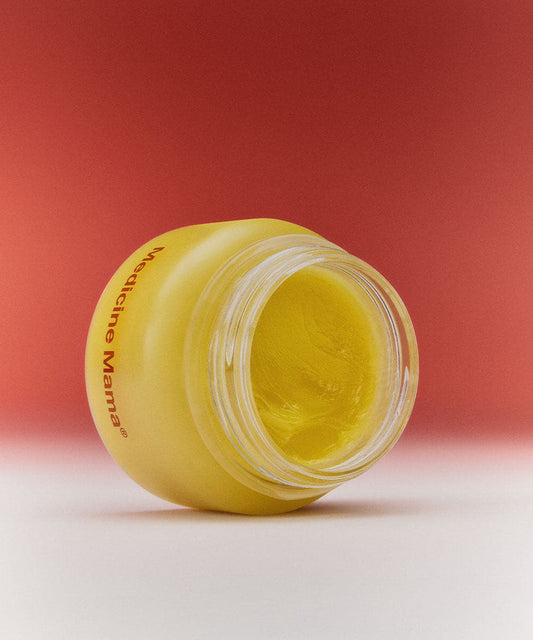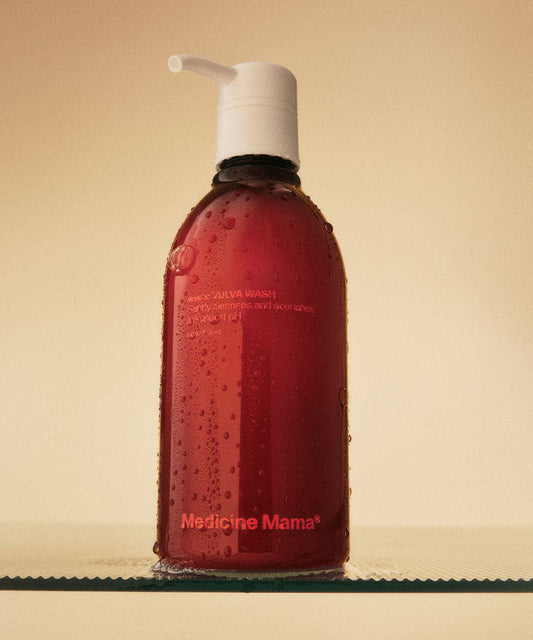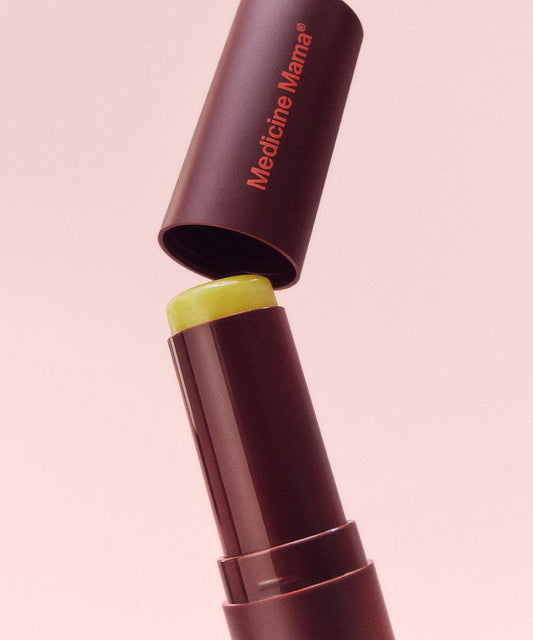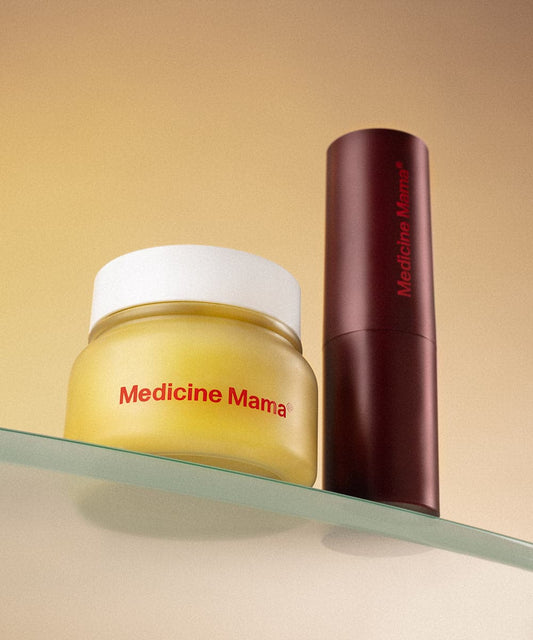
Reviewed by | Melinda (Melle) Hany, RN, ADN Registered Nurse
Let’s just say it: sex isn’t supposed to hurt. And yet, if you’ve ever found yourself flinching, bracing, or quietly pushing through discomfort during intimacy, you’ve probably also found yourself wondering if something’s wrong or worse, if it’s just in your head. Spoiler: it’s not.
At Medicine Mama, we’ve had this conversation more times than we can count. And while it’s one many people avoid out of shame, confusion, or just not knowing where to start, it deserves attention. Your comfort matters. Your pleasure matters. And if something feels off, it’s worth talking about.
Let’s walk through it together.
What Is Dyspareunia?
Dyspareunia is the medical term for pain during sex — and no, it’s not just a fancy word for “discomfort that goes away with more lube.” It refers specifically to pain that happens during or after vaginal penetration and sticks around long enough to feel like more than just a bad night.
It can be connected to a wide range of physical or emotional factors, and for many, it’s not just about the pain itself — it’s the confusion, the avoidance, the not knowing how to bring it up. And here’s the thing: it’s not rare.
Studies estimate that nearly three out of four women will experience pain during sex at some point in their lives, and around one in ten deal with it regularly. So, if you’ve ever felt like the only one dealing with this, trust us — you’re not.
What Does Painful Sex Feel Like?
It really depends. For some, it’s a burning or stinging sensation right at the vaginal opening. For others, it’s more of a deep, internal ache that shows up during penetration or lingers after.
You might notice a sharp, pinching feeling in one specific spot, or a general soreness that makes your whole pelvic area feel a little out of whack. It could feel like friction, like your skin is too raw, or like your muscles are tightening up in a way you can’t control.
Another thing people often experience? A kind of pressure that feels like your body is trying to say “no” even if your mind is saying “yes.” Some describe it as tearing, some as cramping, and others as a vague discomfort they can’t quite explain — just that it doesn’t feel good.
It might happen every time you have sex. Or only in certain positions. Or only after sex ends. It might show up suddenly, or it might be something you’ve been quietly pushing through for a while.” “You may even have pain that only happens during and directly after having an orgasm, to add even more insult to injury,” notes Melinda Hany, Registered Nurse.
Whatever the details, here’s what really matters: if sex feels physically unpleasant, stressful, or like something to avoid, that’s not something to brush off. It doesn’t have to be “severe” to be valid. If it hurts, it counts.
So, What Causes Dyspareunia?
Wondering why sex is suddenly feeling more “ouch” than “oh wow”? There are a lot of potential reasons, but here are some of the most common culprits — and a few tips for tackling each one.
Vaginal Dryness
Dryness is one of the most common causes of painful sex, and it can show up for a lot of reasons. Hormone changes during perimenopause, menopause, postpartum, or breastfeeding can all lead to less natural lubrication, which means more friction and less comfort.
Certain medications, like some birth control pills, antidepressants, and antihistamines, can also dry things out. Even stress can mess with your body’s natural moisture levels. The good news? It’s something you can work with.
Daily moisturizers can make a big difference for your vulva, keeping the skin soft, stretchy, and comfortable around the clock. Our VMAGIC® Vulva Balm is a great choice — it’s organic, hormone-free, and made to hydrate and soothe sensitive, shifting skin. Just a small amount can help support your body’s natural moisture barrier.
When it comes to the bedroom, a good lube is a must. Our Intimate Glide is water-based, organic, and designed to work with your body’s natural lubrication without adding any weird chemicals to the mix. It’s perfect for those times when your body isn’t keeping up with your mind or when you just want a little extra glide to keep things comfortable.
Pelvic Floor Tension
Your pelvic floor is a group of muscles that support your bladder, bowel, and reproductive organs, and they’re supposed to relax when you’re having sex. But sometimes, those muscles decide to clench up instead, and that can lead to sharp, cramping pain that feels like your body is slamming on the brakes (even if your mind is all in).
This can happen for a lot of reasons. Stress, restlessness, and past trauma can all contribute, as can certain medical conditions like endometriosis or interstitial cystitis. Even just anticipating pain can make your muscles tense up without you realizing it.
If this sounds familiar, the key is to retrain those muscles to chill out a bit. Pelvic floor therapy can be a game-changer, and things like deep breathing, mindful stretching, and targeted exercises (like pelvic floor drops instead of just Kegels) can also help.
You can even try incorporating more slow, intentional foreplay to give your body a chance to fully relax before things heat up.
Infections and Imbalances
Sometimes, the problem isn’t dryness or muscle tension — it’s an infection or imbalance. Yeast overgrowth, bacterial vaginosis, urinary tract issues, and even some STIs can cause burning, itching, and intense pain during sex. You might notice a change in discharge, an unfamiliar scent, or just a general sense that things are off.
Dealing with this kind of discomfort? It’s a good idea to check in with a healthcare provider. They can help you figure out what’s going on and get you back to feeling comfortable again. And once you’re in the clear, it’s all about maintenance.
Practicing good hygiene, using gentle, pH-friendly products, and letting your vulva breathe (yes, seriously) can all help keep things balanced moving forward. That means skipping the harsh soaps and opting for something designed for this sensitive area, like our VMAGIC® Vulva Wash — a gentle, fragrance-free cleanser that supports your skin’s natural balance without leaving behind residue or irritation.
When Should You Talk to Your Doctor?
If you've tried the lube, the moisturizer, and the breathing exercises, and sex still feels painful, off, or just not like it used to, it might be time to bring in a pro. We know it’s not the easiest conversation to start, but a quick chat with your OB-GYN or primary care provider can make a huge difference.
Here’s the general rule: if pain is consistent, getting worse, or interfering with your ability to enjoy intimacy, that’s your sign. Same goes for symptoms like sharp or deep pain, burning that lingers, spotting after sex, or anything that just feels like a red flag.
You don’t need to show up with all the answers — just let them know what’s been happening and how long it’s been going on. From there, they can help rule out any underlying conditions and figure out what kind of support makes sense for your body. Your comfort matters, and so does getting the care you deserve.
The Bottom Line
So, why exactly is sex painful? It could be a lot of things, from dryness and muscle tension to infections, hormone shifts, or even just being in the wrong headspace. And of course, other factors can come into play, like scarring from childbirth, side effects from certain medications, or even nerve issues.
Not sure what’s going on, or just want some answers? Don’t hesitate to check in with your doctor. They can help you sort out what’s happening and get you back to feeling like yourself again.
And if you’re looking for a little extra support along the way, we’re here for you. At Medicine Mama, we make vulva care essentials designed to keep you comfortable, confident, and in touch with your body at every stage.
Ready to start feeling good again? We’re here when you need us.
Sources:
What You Should Know About Dyspareunia | AAFP
Dyspareunia (Painful Intercourse): Causes & Treatment | Cleveland Clinic
Dyspareunia - StatPearls | NCBI
Vaginal Dryness: Causes, Symptoms & Treatment | Cleveland Clinic



